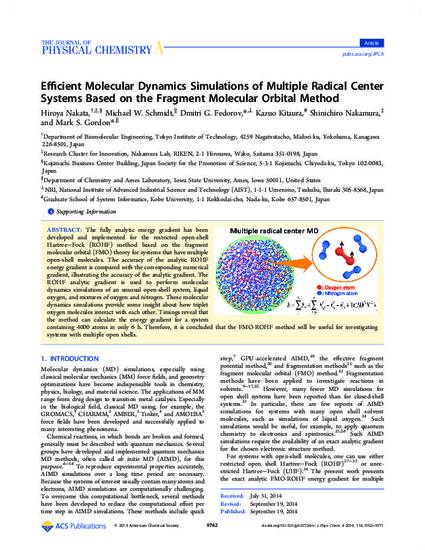
The fully analytic energy gradient has been developed and implemented for the restricted open-shell Hartree–Fock (ROHF) method based on the fragment molecular orbital (FMO) theory for systems that have multiple open-shell molecules. The accuracy of the analytic ROHF energy gradient is compared with the corresponding numerical gradient, illustrating the accuracy of the analytic gradient. The ROHF analytic gradient is used to perform molecular dynamics simulations of an unusual open-shell system, liquid oxygen, and mixtures of oxygen and nitrogen. These molecular dynamics simulations provide some insight about how triplet oxygen molecules interact with each other. Timings reveal that the method can calculate the energy gradient for a system containing 4000 atoms in only 6 h. Therefore, it is concluded that the FMO-ROHF method will be useful for investigating systems with multiple open shells.
Available at: http://works.bepress.com/mark_gordon/397/

Reprinted (adapted) with permission from Journal of Physical Chemistry A 118 (2014): 9762, doi:10.1021/jp507726m. Copyright 2014 American Chemical Society.